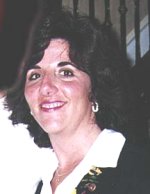 Kesher Family Camp
Kesher Family Camp
At the end of June, I participated in a wonderful camp program at Camp Ramah in the Poconos (PA). Kesher Family Camp is open to all families (deaf and hearing) who are raising deaf children. It lasted for five days. There were 12 families who attended. There were 9 staff, including 3 educators, 1 counselor, 1 intern, 3 interpreters, and myself (as interim director). Everyone had a great time and learned a lot. If you know any families raising deaf children who might be interested in such a program for next summer, please contact me and I can provide you with additional information.
Interpreters’ Roles
In the Kesher Program, as well as in many other common situations, interpreters are asked to take on a variety of roles. According to the way most interpreters were trained, this may cause a dilemma. We were taught to be conveyors of information and cultural mediators, and not to become involved or express our opinion.
However, in the real world, most interpreters do have “another life”. In other words, they have skill and training in a variety of areas. Most interpreters have other competencies that they have acquired and use, prior to and simultaneous with their career as an interpreter.
Take me for an example. I am a trained teacher of the deaf. I am a trained evaluator of interpreters. I have training in instruction of ASL as a second language. I have experience as a religious school teacher with deaf children. I have taught Hebrew. I am involved with a Havurah where I occasionally lead services and explain about the significance of the parts of the service.
Ironically, in social circles, I am often introduced as “this is my friend, Lore. She is an interpreter.” This is despite the fact that I only interpret 3 hours of the week a very small percent of my professional work time.
It happens sometimes that I teach sign language or teach classes to deaf people in religious concepts. At Camp Ramah, I even led services one morning, as I have done at my Havurah. In those situations, it would be easy to accuse me of “stepping out of my role” and taking on tasks “unbefitting” to an interpreter. However, when I assume these jobs, it is because I am also a teacher and a person.
Similarly, I know interpreters who are artists, dancers, actors, etc. If they choose to teach art, dance, or acting, are they doing a disservice to their students because they are also trained interpreters? No, in that setting they are practicing their other professional skill.
In a 24-hour-a-day environment such as a camp, roles can be confusing. Should a person who is an artist and an interpreter be hired to teach art in the morning and interpret in the afternoon? Is this confusing for participants or merely taking best advantage of the skills of a staff member?
What do you think? Please feel free to contact me c/o JDCC, by fax (215) 682-9742 or via e-mail [email protected].
Pittsburgh, PA Interpreted Services
Sanford Pollock, who is hearing, has been exploring options for his deaf son in the local Pittsburgh area. He explains that “I wanted my son Gregory, now age 8, to be Bar Mitzvah and to have a Confirmation the same as I did. How could he possibly have the same religious experiences I had? How could he grow up to be a Jewish adult?” He notes that many Jewish adults attend deaf churches because it is more accessible. “They reach out to the deaf and give the deaf the connection and the community they yearn for. Deaf Jews have been disenfranchised from the Jewish Religion. Lost to Judaism by the failure of the Jewish Community to make the Synagogue accessible. I could not let this happen to my son. Would, or could the Synagogues of Pittsburgh be accessible to the deaf who WANT to be Jewish?” He reports that after one year, through cooperative efforts, a grant was obtained to cover part of the cost of a Sign Language interpreter for Gregory’s Sunday School. “My goal however, was to have interpreted Synagogue services. A grant was arranged for one Sign Language interpreted Friday night service each month. We have had 12 deaf Jews attend Tree of Life Synagogue services, thanks to its Rabbi Alvin Berkun and educational director Fran Borovetz, Judy Berkowitz at the Jewish Education Institute, Kathy Hoel with Jewish Care Coordination Program of Jewish Family and Childrens Service, interpreters Debbie Goldberg, Ilyssa Haas and Carole Gerson.”
IF ANYONE HAS COMMENTS TO THIS ARTICLE, PLEASE FEEL FREE TO SHARE YOUR INPUT…




